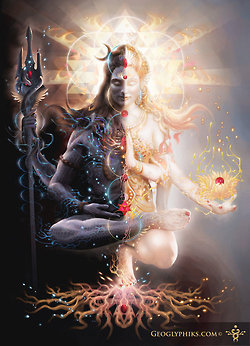For decades it has been portrayed to us that women becoming empowered, becoming equal, becoming ‘non-traditional’ was somehow challenging to men, ‘us vs. them’, and a new facet of the War of the Sexes. Because there is a finite amount of power in the world and if women had some, then men couldn’t have it. Blah de blah….
Also, for centuries we have been taught that the male perspective is universal, it is relevant equally to men and women, and that things specific to women are less than, a minority point of view, and a special interest not something that can be seen as universally relevant. I didn’t realize how pervasive this was until I was talking with a coworker about a degree I was taking in Women’s Spirituality. He was curious about what that meant and as I was explaining he nodded along, following the concepts I was discussing. And then he stated that it would be easier for us since we could build on the classic texts, concepts, and theories that had already been created throughout time. And I just looked at him, then asked “Why would we? Those are all from a male perspective and there’s no reason to start from the assumption that they are relevant at all.” The shock on his face was cartoon classic. And it became clear to me how much we have accepted that male perspectives are everyone’s perspectives.
This is not to say that they aren’t relevant. They are. And that’s where perhaps my Native background informs my understanding of things. Because in my culture we see men and women as coequal partners in life, both needing the other in order for their to be not only harmony, but beauty in relationship, in the community and in the world. And just to be clear, this isn’t about heterosexual relationship to the exclusion of all else. All gender expressions are included and seen as variations of harmony and wholeness. LGBT people are considered more in balance or achieving balance in themselves between the masculine and the feminine and are therefore honored for their experience and their wisdom.
 So, if both masculine and feminine are intertwined and support each other, then women becoming more sovereign and empowered in life doesn’t take away from men, it challenges them to become more as well. It’s not about power, but about becoming for fully and wholly your self. For men, what I am seeing that it is about the challenge of being masculine without the structure and roles that defined masculinity. It’s about creating a structure within which women can be sovereign, can live a fully creative and impassioned life. It’s about being the support structure for that relationship without giving up their own sovereignty. It’s about being a coequal partner. It’s about ‘don’t just do something, stand there’ and what it means to be there for your partner for your kids for your family without having a mission other than to be there. It’s about being able to not only show what it is to be a man, but to be able to talk about it openly even if the answer is “I don’t know”. Just the fact that you are there to be asked is an amazing feat. That you have created a space where it’s ok to ask you something is even better. That you have created a relationship where you can be asked the big questions and it’s not an event of monumental proportions but just a part of being part of their lives, that’s a goal worth striving for.
So, if both masculine and feminine are intertwined and support each other, then women becoming more sovereign and empowered in life doesn’t take away from men, it challenges them to become more as well. It’s not about power, but about becoming for fully and wholly your self. For men, what I am seeing that it is about the challenge of being masculine without the structure and roles that defined masculinity. It’s about creating a structure within which women can be sovereign, can live a fully creative and impassioned life. It’s about being the support structure for that relationship without giving up their own sovereignty. It’s about being a coequal partner. It’s about ‘don’t just do something, stand there’ and what it means to be there for your partner for your kids for your family without having a mission other than to be there. It’s about being able to not only show what it is to be a man, but to be able to talk about it openly even if the answer is “I don’t know”. Just the fact that you are there to be asked is an amazing feat. That you have created a space where it’s ok to ask you something is even better. That you have created a relationship where you can be asked the big questions and it’s not an event of monumental proportions but just a part of being part of their lives, that’s a goal worth striving for.
So while we focus on women and supporting them in achieving their own sovereignty , it’s worth remembering that men are part of that equation. An important part. And it’s not about defeating them or beating them or becoming them. It’s about acknowledging their divinity as much as hours and working together to make harmony and beauty and a better world.
